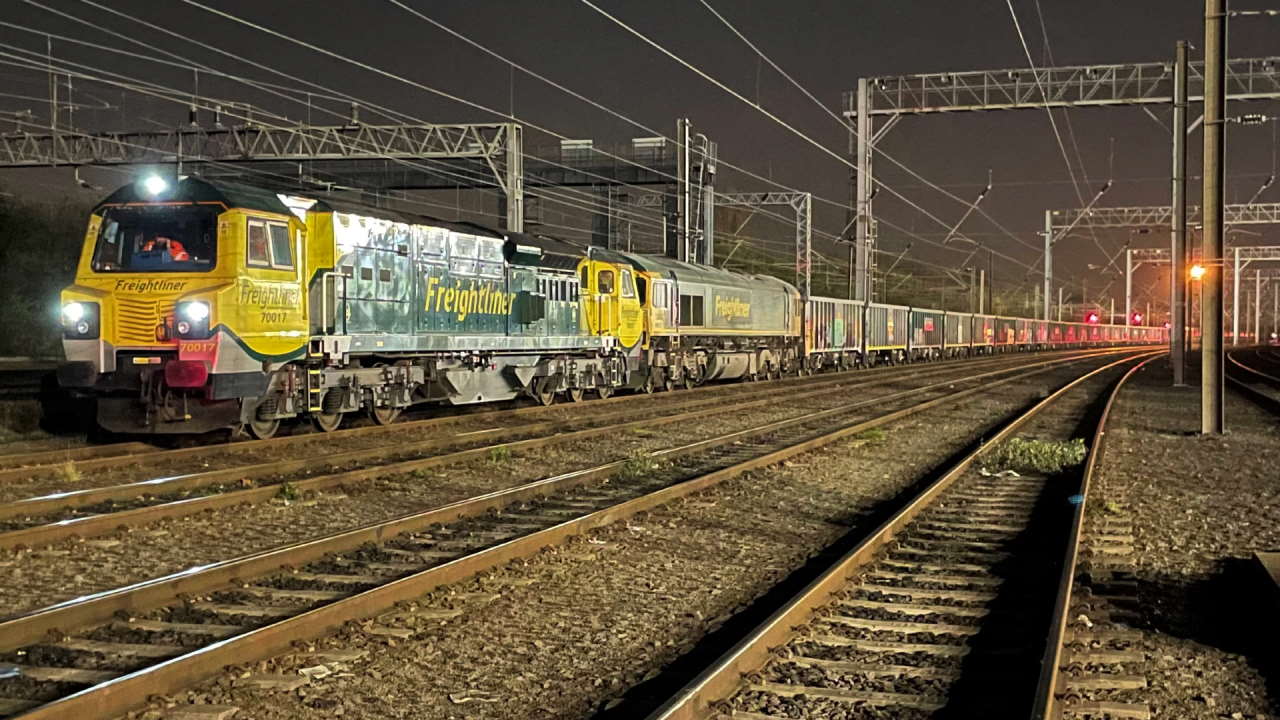Freightliner has called for the Government to help the operator reach the government-set rail freight target.
The target, set by the Government in December 2023, aims to increase the amount of freight carried by rail by 75% by 2050.
Freightliner are an essential part of this ambition, part of the Government’s plan for the UK to reach net zero in just over twenty five years’ time.
It is an ambitious target and Freightliner are aiming not only to meet but also to beat it.
As well as their own investment, they have called on the government to adopt three new policies to help them put more goods onto the rails:
- Reduce freight access charges which operators pay to use the rail network by 50%
- Double the amount available to businesses when costs are higher than transporting goods by road. This modal shift grant is vital in attracting freight to the railways.
- Increase capacity for freight services, especially on the busiest routes.
Earlier this year, MPs met with freight operators to explore ways to increase the volume of goods sent by rail.

DP World helps move more freight onto the rails
One of Freighliner’s major customers is DP World. Based in Dubai, this global logistics company handles around 3.6 million containers each year at its port-side rail terminals at Southampton and London Gateway.
Their Modal Shift Programme is planning a 40% increase in the amount of container traffic leaving the Port of Southampton by rail.
This is the equivalent of 14,000 HGV-loads of goods which would have otherwise been moved by road.
The Programme was introduced in September 2023 and, by March of this year, led to an two thirds increase in the share of containers leaving Southampton by rail rather than road.
This means that 35% of DP’s freight from Southampton travels by train instead of HGV, up from 21% when the Programme started.
The success of the trial so far is proof that rail can be effectively utilised to achieve lower carbon international supply chains that better serve the UK economy and environment.
John Trenchard, VP Commercial & Supply Chain at DP World

Freightliner push for more government action
It is not just the UK Government which wants to incentivise sending more freight by rail.
In Germany, for instance, electricity rates are capped for railfreight, ensuring that it makes economic as well as environmental sense to send goods by train.
Freightliner support similar action here and, because there is less electrification in the UK rail network compared to our European neighbours, are also keen to explore alternatives to polluting diesel.
On Saturday, 25th May, Freightliner and DP World featured on Channel 4 News, highlighting the green benefits of transporting goods by rail. You can watch the report here.
Railfreight recently introduced a new intermodal service linking the Port of Southampton to the West Midlands.
It is a positive commitment that the Government have set the first ever target for rail freight, but this now needs to be supported by positive policies that will enable modal shift. Policies that address the cost gap between road and rail and ensure sufficient capacity for freight services to run on the network are necessary to provide confidence to the private sector to continue to make the significant investment within the rail freight industry that will deliver the growth.
Tim Shoveller, Freightliner CEO





Responses
You say:
Freightliner support similar action [to in Germany] here and, because there is less electrification in the UK rail network compared to our European neighbours, are also keen to explore alternatives to polluting diesel.
But this is just below a photograph of two Freightliner diesels running under wires on the West Coast Main Line. I live near the West Coast Main Line and regularly see diesels where electric could go.
Why run diesels on electrified tracks while saying you don’t want to?